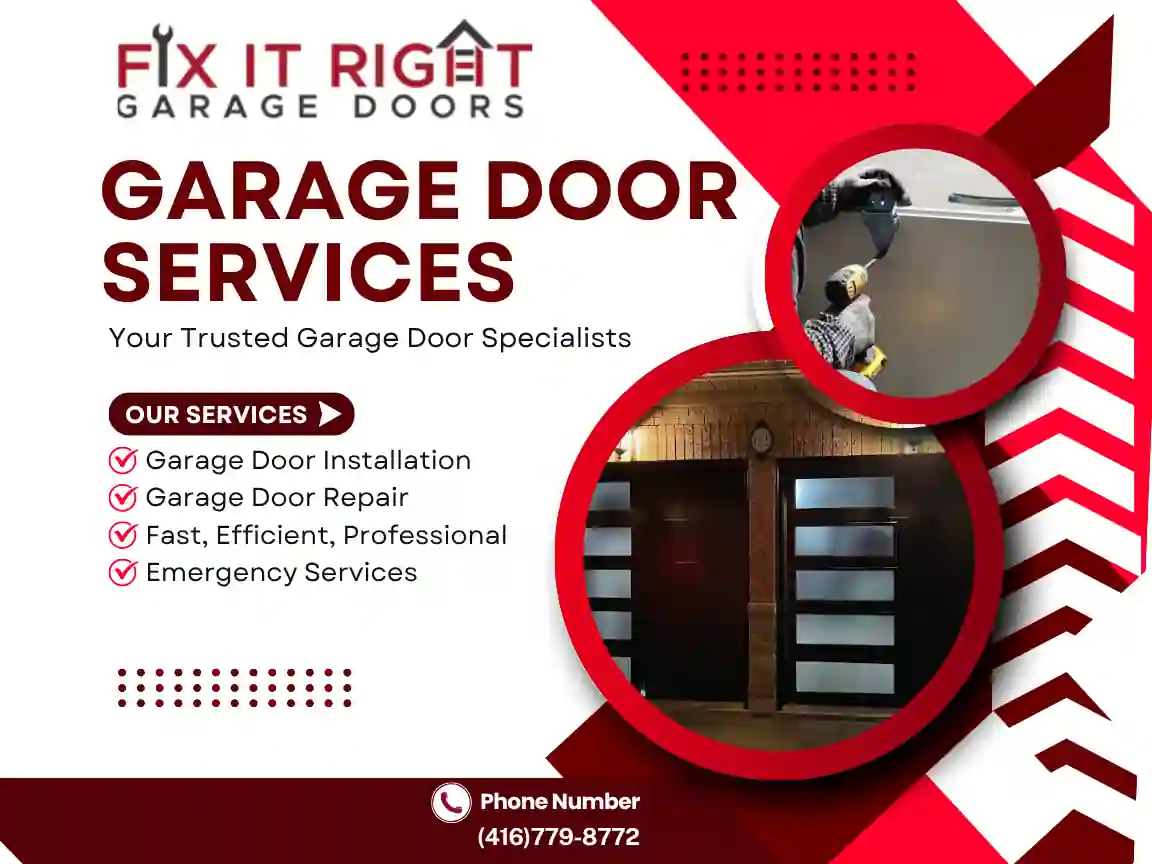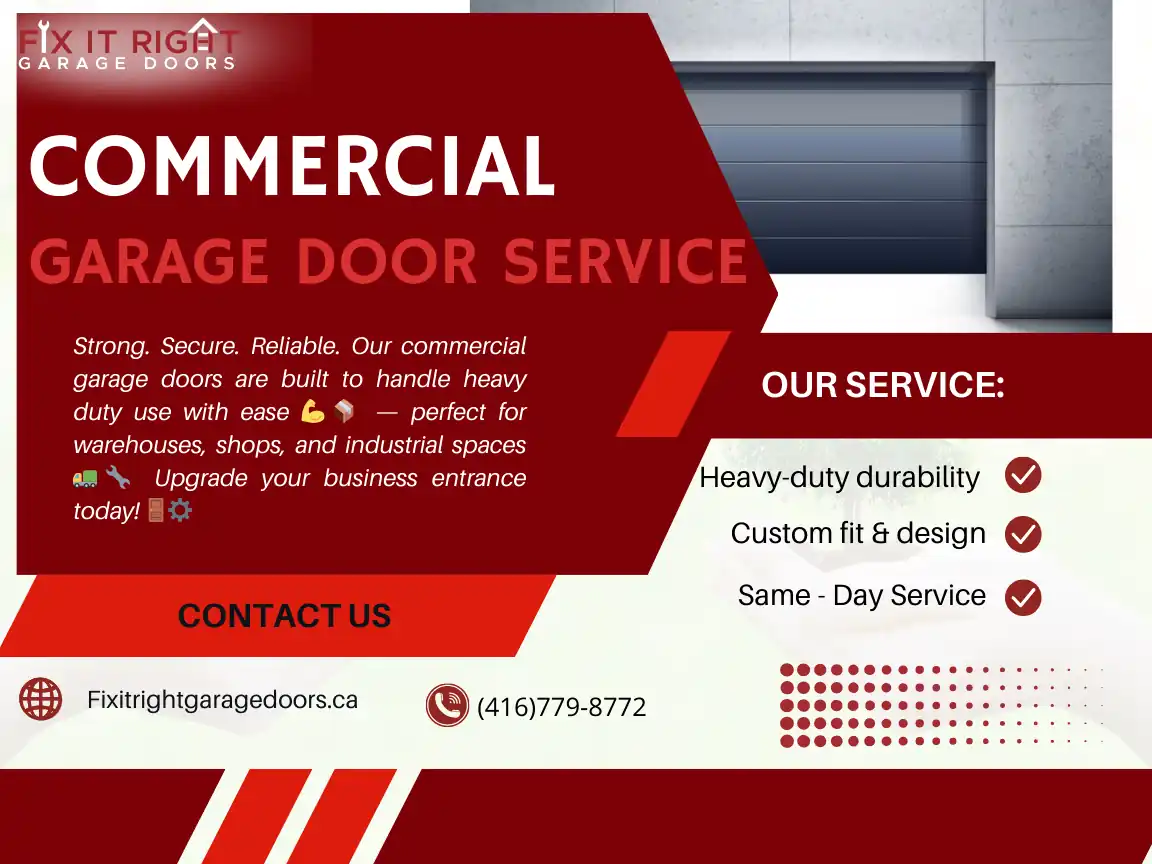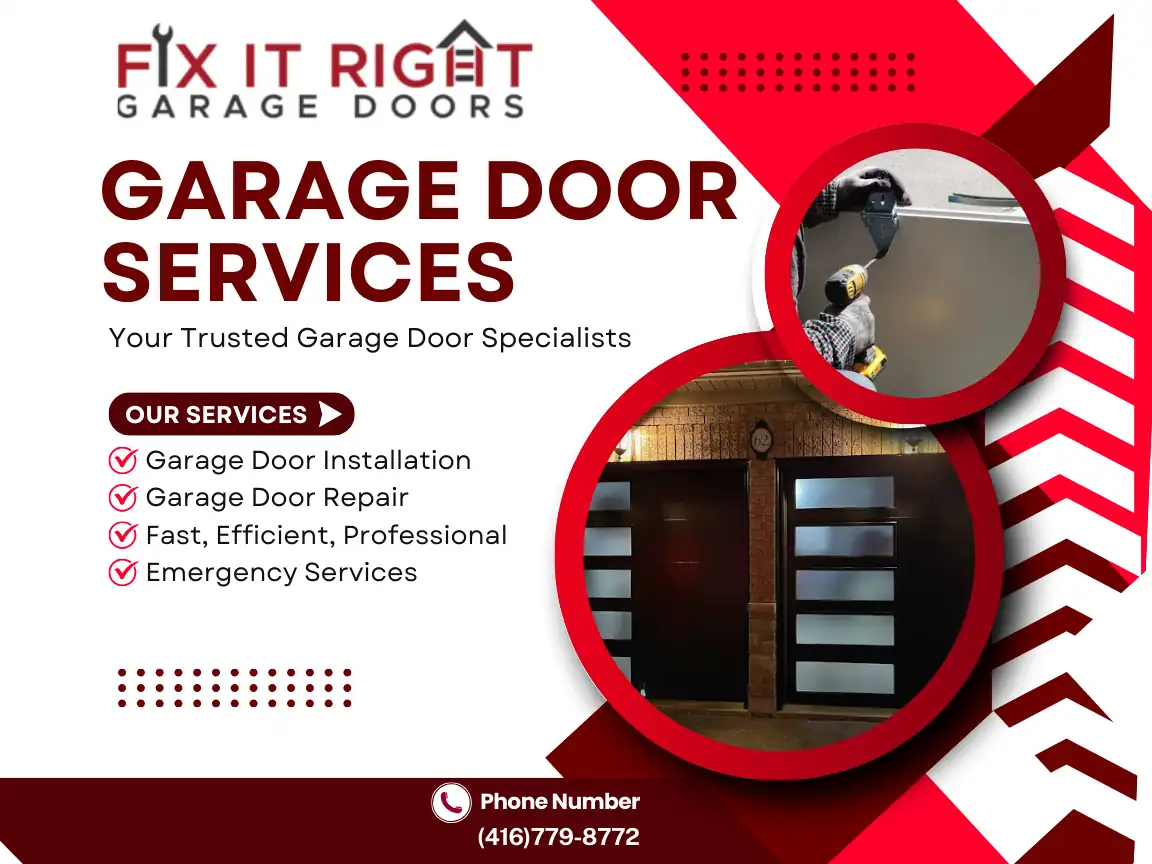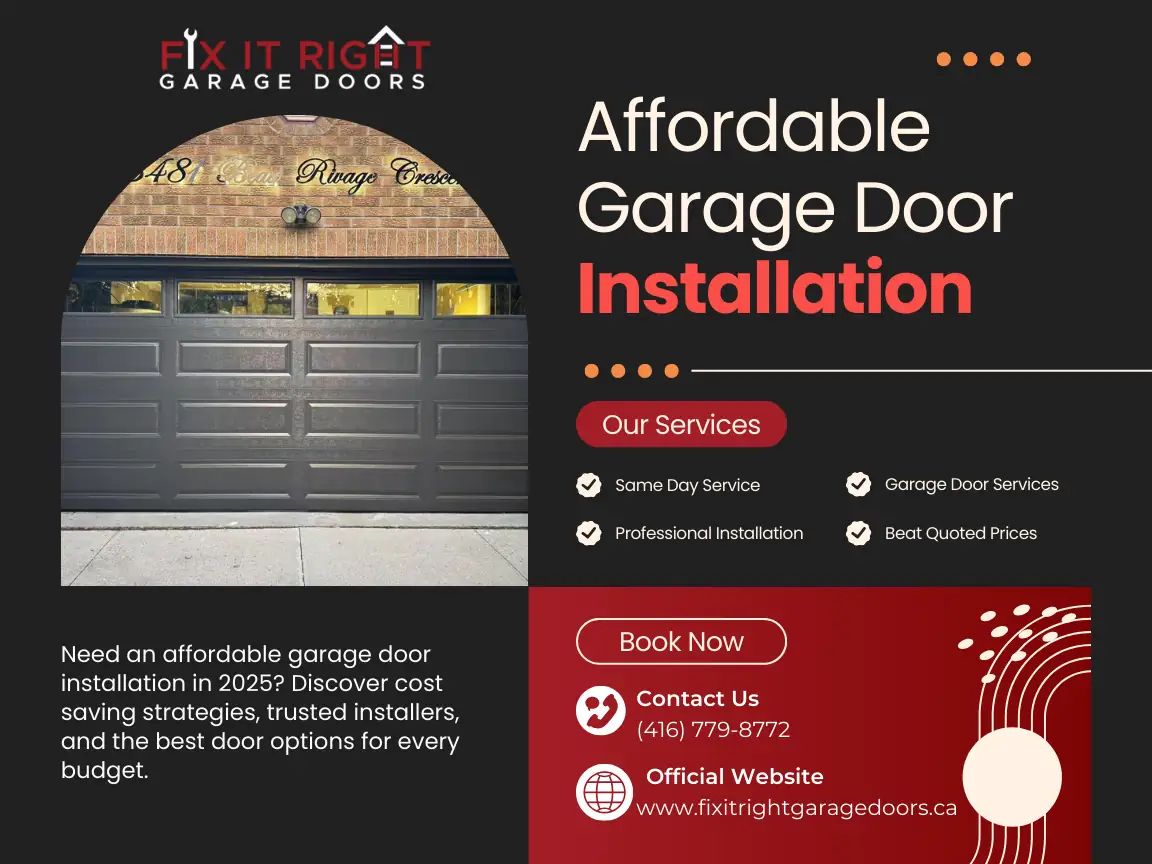When your garage door glides open and closed with quiet efficiency, it’s easy to take its seamless operation for granted. But behind that smooth movement lies a small, often unsung component: the garage door rollers. These seemingly simple wheels are vital cogs in the complex mechanism of your garage door system, guiding the heavy panels along the tracks and ensuring reliable performance. Without properly functioning garage door rollers, your door can become noisy, jerky, inefficient, and even dangerous.
In this in-depth guide, we’ll roll into everything you need to know about garage door rollers. We’ll explore the different types available, the tell-tale signs of wear and tear, essential maintenance tips, the critical process of garage door roller replacement, and why choosing the right rollers, especially durable nylon garage door rollers, can significantly improve your door’s lifespan and quiet operation. We’ll also cover when it’s best to call a professional for issues like a broken garage door roller.
What Are Garage Door Rollers and Why Are They So Important?
Imagine a train trying to run without wheels on its tracks – that’s essentially a garage door without its rollers! Garage door rollers are small wheels, typically made of steel or nylon, with stems that insert into hinges attached to the garage door panels. These rollers then run inside the metal tracks that guide the door’s movement as it opens and closes.
Their importance cannot be overstated:
- Smooth Operation: They minimize friction between the door and the tracks, allowing the heavy door to move smoothly and quietly.
- Stability and Alignment: They keep the door panels securely within the tracks, preventing the door from going off-kilter or getting jammed.
- Reduced Strain: By facilitating smooth movement, they reduce strain on the garage door opener, springs, and cables, extending the lifespan of your entire system.
- Safety: Properly functioning rollers are a key safety component, preventing the door from binding or falling unexpectedly.
A standard residential garage door typically has between 10 and 12 rollers, depending on its height and number of panels.
Types of Garage Door Rollers: Choosing the Right Spin
Not all garage door rollers are created equal. They come in different materials, bearing types, and stem lengths, each with its own advantages and disadvantages. Understanding these differences is crucial when considering a garage door roller replacement.
- Material:
- Steel Rollers:
- Pros: Generally the most affordable option. Durable and long-lasting when well-maintained.
- Cons: Can be noisy, especially without proper lubrication. Prone to rust if not galvanized or if the coating wears off. Less smooth operation compared to nylon.
- Nylon Garage Door Rollers:
- Pros: Significantly quieter operation due to less friction. More durable and impact-resistant than steel. Rust-proof. Ideal for homes with attached garages where noise is a concern. Often have better seals to protect bearings.
- Cons: Generally more expensive than steel rollers.
- Plastic Rollers:
- Pros: Very cheap.
- Cons: Usually found on very old or low-quality doors. Very noisy, wear out quickly, and prone to breaking. Avoid these if possible.
- Steel Rollers:
- Bearing Type: This is a crucial factor affecting roller performance and lifespan. Bearings reduce friction and allow the wheel to spin freely.
- No Bearings (Basic Rollers): Often found on low-end plastic or economy steel rollers. The axle simply spins inside a bushing. Very noisy, short lifespan.
- 7-Ball Bearings: A common upgrade from basic rollers. These have seven ball bearings inside for smoother operation and longer life than no-bearing rollers.
- 10-Ball Bearings: Offer even smoother and quieter operation with extended durability. A good balance of performance and cost.
- 11-Ball Bearings (or more): Premium rollers with maximum smoothness, quietness, and longevity. Often found in heavy-duty or commercial applications, but also available for discerning homeowners seeking the best performance.
- Stem Length: Rollers come with stems of different lengths (e.g., 4-inch, 7-inch). The correct stem length is determined by your garage door’s hinges and track system. Most residential doors use 4-inch stems, but bottom rollers often have longer stems.
Recommendation: For most homeowners looking for a balance of performance, durability, and quiet operation, nylon garage door rollers with at least 10 ball bearings are an excellent investment. They dramatically reduce noise and friction, putting less stress on your entire system.
Signs Your Garage Door Rollers Need Attention
Your garage door rollers are constantly under stress, and like any moving part, they will eventually wear out. Knowing the signs of failing rollers can help you address the issue before it leads to more serious and costly problems, such as a broken garage door roller causing the door to bind or even come off its tracks.
- Excessive Noise: Squeaking, grinding, scraping, or rattling sounds are common indicators. Old, unlubricated steel rollers are notorious for this.
- Jerky or Uneven Movement: If your garage door shudders, shakes, or moves unevenly as it opens or closes, worn rollers might be the culprit. They might be binding in the tracks.
- Visibly Worn or Damaged Rollers:
- Flat Spots: Plastic or steel rollers can develop flat spots from wear, causing jerky movement.
- Cracked or Chipped Wheels: Especially common with plastic rollers.
- Worn-out Bearings: If the wheel wobbles excessively on its stem or spins roughly.
- Rust: Rusted steel rollers will create significant friction and noise.
- Rollers Popping Out of Tracks: While this can indicate track issues, a severely worn or broken garage door roller can sometimes cause the door to jump off its track. This is a serious safety hazard.
- Increased Strain on Opener: If your garage door opener seems to be working harder than usual, making straining noises, worn rollers could be increasing the friction it needs to overcome.
Maintaining Your Garage Door Rollers for Longevity
Proper maintenance can significantly extend the life of your garage door rollers and ensure smooth operation.
- Regular Cleaning:
- Every few months, visually inspect your rollers.
- Use a damp cloth to wipe away any dust, dirt, or debris that accumulates on the roller wheels and stems.
- Important: While cleaning the roller wheels is fine, do not use harsh degreasers on nylon rollers with sealed bearings, as this can damage the seals.
- Proper Lubrication:
- For Steel Rollers: Apply a high-quality garage door lubricant (silicone-based or lithium grease spray, specifically for garage doors) to the bearings (where the stem meets the wheel) and the outside of the roller wheel where it contacts the track. Do this every 3-6 months.
- For Nylon Garage Door Rollers with Sealed Bearings: These generally require less lubrication. Lubricate the stem where it enters the hinge, but avoid spraying lubricant directly onto the nylon wheel, especially if it has sealed bearings, as it can attract dirt. If the bearings are exposed, a light spray might be beneficial.
- Crucial Reminder: Never lubricate the inside of the garage door tracks. Lubricant on the tracks will attract dirt and grime, turning it into an abrasive paste that actually damages the rollers and impedes movement. The tracks should remain clean and dry.
- Check for Tightness: Ensure that the bolts holding the hinges (which hold the rollers) to the door panels are secure. Loose hinges can cause rollers to misalign.
When to Consider Garage Door Roller Replacement
If your garage door rollers are showing significant signs of wear, are making excessive noise even after cleaning and lubrication, or if you have a broken garage door roller, it’s time to consider a garage door roller replacement.
DIY vs. Professional Replacement:
- DIY Replacement (with caution): Replacing some rollers, particularly those in the middle of the door that aren’t under spring tension (and only if your garage door is fully open and secured), might be feasible for a handy homeowner. You would typically remove the hinge, replace the roller, and reattach the hinge.
- Professional Replacement is Recommended For:
- Bottom Rollers: These are under extreme spring tension, especially when the door is closed. Attempting to remove them without safely disengaging the spring tension is incredibly dangerous. A broken garage door roller at the bottom can be a major hazard.
- Any Roller on an Off-Track Door: If your door is off its tracks, it’s unstable, and attempting to fix rollers yourself can lead to further damage or injury.
- Multiple Broken Rollers: If several rollers are worn or broken, it often indicates a larger issue with the system, or simply that all rollers are reaching the end of their lifespan. A professional can assess the entire system.
- Lack of Experience/Comfort: If you’re not comfortable working with mechanical systems or don’t have the right tools, don’t risk it.
- Improving Performance: If you want to upgrade to nylon garage door rollers or better bearings, a professional can ensure proper installation and alignment for optimal quietness and longevity.
The Garage Door Roller Replacement Process (Professional Overview)
A professional garage door roller replacement ensures safety and proper functionality. Here’s what it typically involves:
- Safety First: The technician will first disconnect the garage door opener and often place clamps on the track to secure the door, especially if replacing bottom rollers that are under significant spring tension. In some cases, spring tension may need to be partially or fully released.
- Removing Old Rollers: Each roller is carefully removed from its hinge. For bottom rollers, specialized tools or careful manipulation of the cable/spring system may be required.
- Installing New Rollers: New rollers, ideally high-quality nylon garage door rollers with appropriate bearings, are inserted into the hinges.
- Inspection and Adjustment: Once all rollers are replaced, the technician will carefully inspect the tracks for any bends or misalignment that might have contributed to roller wear. They will ensure the door is properly balanced and aligned within the tracks.
- Lubrication and Testing: The new rollers and other moving parts (hinges, springs) are properly lubricated (excluding the tracks!). The door’s balance and operation are then thoroughly tested to ensure smooth, quiet, and safe movement.
Why Professional Service in Vaughan, Ontario Matters
Living in Vaughan, Ontario, our garage doors face a variety of weather conditions, from humid summers to freezing winters and the notorious road salt. These factors can accelerate wear on components like garage door rollers. Professional garage door services in Vaughan understand these local conditions and can recommend the best type of rollers for longevity in our climate, such as rust-resistant nylon garage door rollers.
Moreover, garage door repairs, especially those involving springs or tracking, are inherently dangerous. Attempting to fix a broken garage door roller yourself, particularly if it’s a bottom roller or if the door is off its tracks, can lead to serious injury or further damage. Professionals have the specialized tools, training, and safety protocols to handle these repairs efficiently and safely.
For further information or to book a service appointment for garage door roller replacement or any other garage door issue, please give us a call! We’re here to help ensure your garage door operates safely, smoothly, and quietly. 📞
For more detailed information on garage door maintenance and safety, you can explore resources from the Canadian Standards Association (CSA Group): https://www.csagroup.org/ or consult your garage door opener’s owner’s manual.
Conclusion: Roll Towards a Quieter, Safer Garage!
Don’t underestimate the power of your garage door rollers! These small but mighty components are essential for the smooth, quiet, and safe operation of your garage door. By understanding the different types, recognizing the signs of wear, performing regular maintenance, and knowing when to call in the experts for a garage door roller replacement or a broken garage door roller issue, you can significantly extend the life of your entire garage door system. Investing in high-quality nylon garage door rollers is a smart choice for a quieter, more durable door. Keep your rollers rolling, and your garage door will thank you with years of hassle-free performance! 🚀🏡










